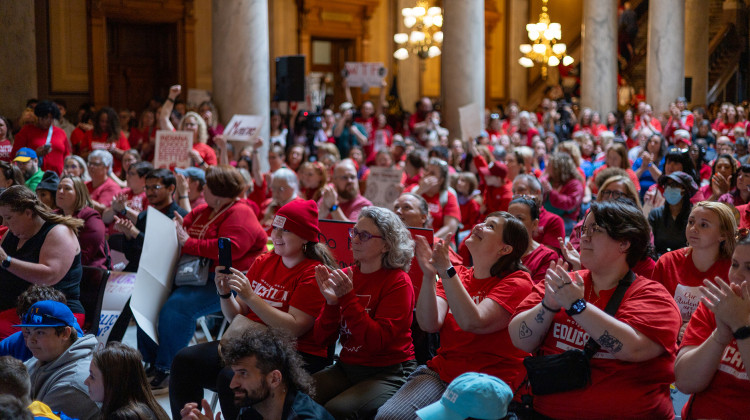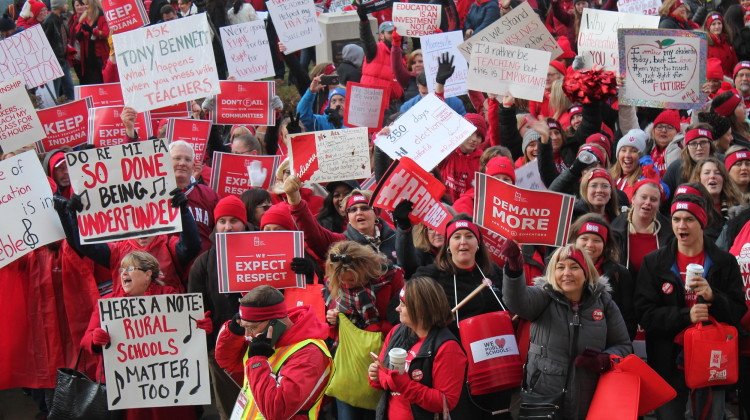
Kelly Dawn Jones shares her experience working as a childcare provider with less-than-minimum wages. Many advocates donned shirts that said, "we are the workforce behind the workforce."
Sydney Dauphinais/WFYISeveral childcare providers in Indianapolis shut their doors on Monday as part of “A Day Without Child Care: National Day of Action.”
Educators and advocates demand policymakers invest in the child care system to provide racial equity and living wages.
Kelly Dawn Jones owns a child care center in the southeastern part of the city. She’s been operating a child care center out of her home for the last 13 years. She closed down her business on Monday to draw a spotlight on the need for transformational investments in the field.
“Running a family child care business on a shoestring budget means I often have to make the difficult choice to provide child care, or close for necessary medical care,” Jones said. “Today, I shut my business down because as a child care center owner, I have nothing left to lose.”
READ MORE: Indiana's Child Care Workers Face Low Pay, Thin Margins - And The Pandemic Made It Worse
Parents, educators and activists met at Jones’ business as part of the solidarity strike.
Speakers pointed out that the same neighborhoods lacking affordable child care also lack grocery stores, good jobs and quality schools.
Participants in the National Day of Action have three demands for elected officials. First, they demand thriving wages for child care providers and workers. They also want an equitable child care system built on racial justice. Third, they’re asking all families have guaranteed access to affordable childcare.
A report from the U.S. Chamber of Commerce Foundation says 94 percent of child care workers are women and 40 percent are women of color. It indicates that many of these workers are already economically disadvantaged by systemic racism and sexism.
Low and stagnant wages have driven several thousand child care workers out of the field in the last decade. The pandemic made this worse.
“If things stay the same, it means that a large number of minority owned businesses will fail,” Jones said. “And we cannot let them fail. We refuse to fail our children and our communities.”
Contact WFYI economic equity reporter Sydney Dauphinais at sdauphinais@wfyi.org. Follow on Twitter: @syddauphinais.
 DONATE
DONATE






 Support WFYI. We can't do it without you.
Support WFYI. We can't do it without you.